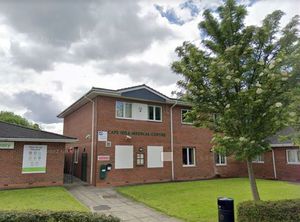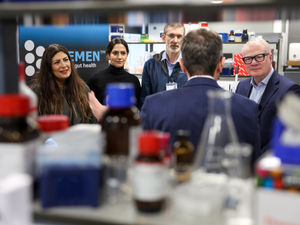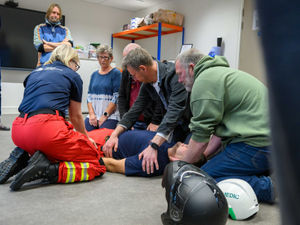Social prescribing on the cards to relieve GP surgeries, report finds
Social prescribing has been mooted as a targeted way to tackle root causes of health inequality in Sandwell, according to a report.

Cape Hill Medical Centre, based in Smethwick, services one of the most deprived areas in Sandwell. It also manages Birmingham Health Exchange Homeless Service.
A presentation on social prescribing was presented at a health and wellbeing board meeting at Sandwell Council this week.
Social prescribing involves putting someone in touch with a service or activity that is seen as therapeutic. It includes referring them to a link worker and is designed to support a patient and to reduce frequent attendance at GP surgeries.
Dr Laura Pugh, a doctor at Cape Hill Medical Centre who presented the report, described how doctors have now a new “social responsibility” to help patients with a multitude of non-medical issues.
She said: “We had a patient who came from a war torn country. She was mute, we could barely get anything out of her.
“We couldn’t understand what the trauma was. We tried what we could, which was antidepressants, but we weren’t really getting anywhere.
“The chaplains didn’t know what to do with her either, but started with hand massage and then moved on to walking her down our corridors and talking about the pictures on the walls.
“A lot has happened in between, but 10 years later, she’s working as a pharmacy assistant. So that those those that holistic approach really made a difference.”
It comes as GPs in particular are increasingly advising patients, especially those who are facing a multitude of challenges or have certain mental health problems, to take part in activities including bingo and gardening, instead of simply writing them a prescription.
A 2019 study showed that a two-hour “dose” of nature a week significantly improved health and wellbeing. Seven NHS care groups across the UK received a combined £5m in government funding in December for projects harnessing nature to improve mental health.
The missing link has been connecting health services to social prescribing activities, according to Dr Pugh.
“We had an 18-year-old homeless individual come into our surgery after a family argument. They were very depressed and very frightened,” she said. “He was beaten by bureaucracy.
“With a social prescriber, we liaised with housing and the job centre and after six hours – with the patient sleeping on a couch throughout – the patient had a bed for the night, an advocate for an interview at the job centre for the next morning and the promise of on going housing if they attended.
“He went out six inches taller and making eye contact with the team which he had not done when he came in.”
Michelle Carolan, managing director of NHS Sandwell and West Birmingham CCG, queried what appetite was out there for social prescribing for young people under 18.
Dr Pugh said she wanted to stop a narrative of “us vs them” between younger patients and the NHS.
“I think from the feedback. The parents were saying, ‘we want help with our teenagers’. It reminds me of a conversation I had with a man in his 50s, whose mother was 15 when he was born.
“He said that his mother couldn’t parent him because she was a child herself, and her parents were in Britain trying to make a better life. She was on her own in Jamaica with strangers. So she had no one to help.
“By the time he was six, he was caring for younger siblings. In his early 20s, he was holding his brother who died of a gunshot wound.
“He could have gone so many pathways. He could be so bitter, but he said, ‘what we should be doing is looking after these young mums’, and I just thought that’s right.
“So I think from these groups, there’s a lot of passion in the patients. So I think it will happen.”
The presentation and report was approved by Sandwell Council’s health and wellbeing board.




